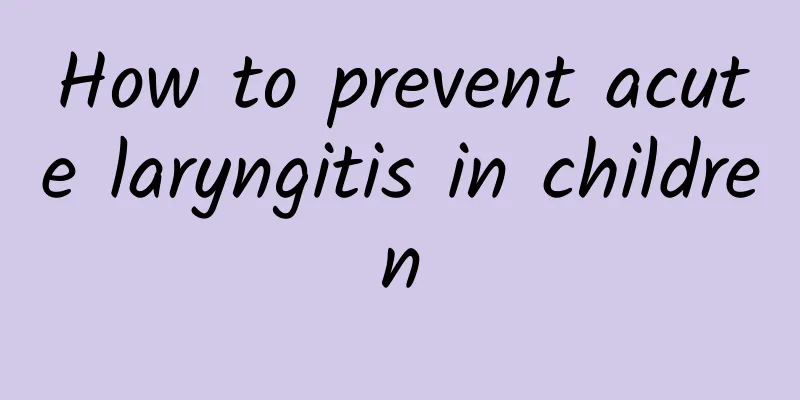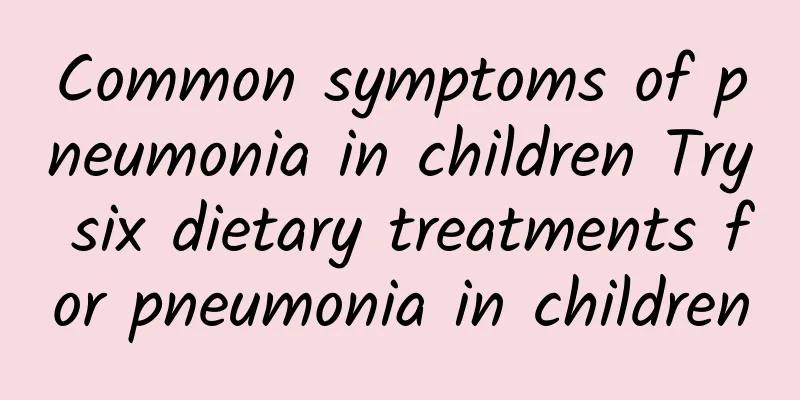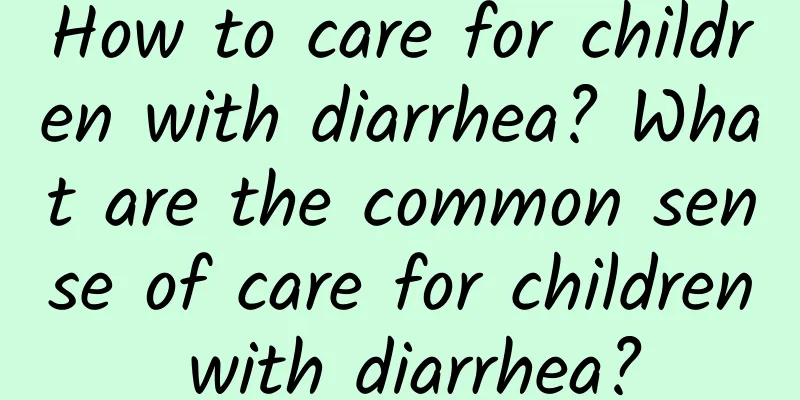How to prevent acute laryngitis in children

|
How to prevent acute laryngitis in children? When it comes to acute laryngitis in children, many people may not know much about it. In fact, this disease is quite common. Most children with acute laryngitis in children develop the disease very quickly. They are suddenly awakened at night, become irritable, have fever, and hoarseness. At the same time, there are bursts of whistle-like sounds. At this time, the cough sounds extremely special, like a puppy's cough, which is called a "barking cough" or a "croup-like cough." In severe cases, due to lack of oxygen, the nose wings will flutter, the face, lips and nails will be cyanotic, and the supraclavicular fossa, suprasternal fossa and upper abdomen will be significantly sunken when inhaling, which is called the "three-depression sign". The child's breathing changes from short and slow to fast and shallow. At this time, the child should be sent to the hospital for treatment immediately. Because long-term breathing difficulties in children will cause hypoxia in the body, especially brain hypoxia and myocardial hypoxia, which will cause serious consequences and even life-threatening. Acute laryngitis in children develops rapidly, is severe and can be life-threatening, so prevention and care must be done well. Acute laryngitis is often secondary to upper respiratory tract infection. Reducing the chance of catching a cold may help avoid the occurrence of laryngitis. (1) Increase outdoor activities, get more sunlight, strengthen physical fitness, improve disease resistance, and promptly treat anemia, malnutrition, rickets, etc. in children. (2) Pay attention to climate changes, add or remove clothes in a timely manner, avoid being exposed to cold or heat, maintain a suitable room temperature, and open windows regularly for ventilation. (3) During the cold epidemic, try to reduce going out to prevent infection. (4) Live a regular life, eat in moderation, have a regular routine, go to bed at night and get up early to avoid catching a cold. Avoid convection wind when sleeping. (5) Maintain oral hygiene and develop the habit of brushing your teeth and rinsing your mouth in the morning, after meals, and before going to bed. (6) Eat more fruits and dried fruits such as pears, raw radishes, and plums to enhance the maintenance function of the throat. (7) Morphine and atropine-type drugs are prohibited to avoid suppressing breathing and drying out the respiratory mucosa. (8) If a child is found to have upper respiratory tract inflammation such as influenza, timely diagnosis and treatment should be sought. Children with symptoms of acute laryngitis should be promptly diagnosed and treated, and their condition should be monitored at all times to prevent unexpected events. |
<<: How to prevent and treat acute laryngitis in children
>>: What should be done to check for acute laryngitis in children
Recommend
Is hand, foot and mouth disease in children highly contagious?
Hand, foot and mouth disease in children is highl...
What causes kidney disease in children?
According to surveys, kidney disease is currently...
Diagnostic criteria for ADHD in children
The appearance of ADHD makes patients very worrie...
What should I do if my newborn has severe jaundice?
What should I do if my newborn has severe jaundic...
What are the diagnostic methods for diarrhea in children?
What are the differential diagnosis methods for d...
Causes of dry cough in children
As people's pace of life accelerates and thei...
What are the symptoms of Kawasaki disease?
Kawasaki disease is an acute inflammatory disease...
Why is extravascular hemolytic jaundice more serious?
Extravascular hemolytic jaundice refers to extrav...
Best recipes for diarrhea in children
Many children are prone to diarrhea due to poor g...
What to do if your child has recurrent coughing
Repeated coughing in children can cause irritatio...
Conventional treatment of diarrhea in children
Although pediatric diarrhea is a common disease i...
How to disinfect your home for hand, foot and mouth disease? What are the methods of disinfection for hand, foot and mouth disease?
Every spring and summer, we often see many places...
What should I do if my child has a respiratory infection and coughs?
If a child has a respiratory infection or cough, ...
Can children eat fish when they have a cold? They can't eat fish in these situations
Fish is a food with high nutritional value, suita...
What are the drugs for treating ADHD in children?
Drugs for treating ADHD in children mainly includ...









